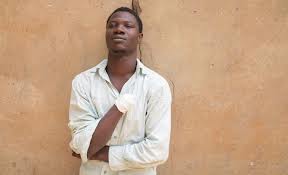It’s amazing that some people protested against the French-led campaign in Mali. Surely the French have a host of national interests in doing so, including sustaining ties to its former colony. No one is naïve enough to believe that it was done out of true altruism. But at the same time, given what the Sharia bullies who ransacked their way through northern Mali and threatened the capital had done to the locals, the French should be applauded.
Tuareg rebels who had long been Libyan leader Colonel Qaddafi’s allies grabbed their weapons and fled to Niger and Mali in 2011 after their benefactor’s demise. Together with Islamist extremists, they overran the Malian military, and the hard-line Al Qaeda in the Islamic Maghreb (AQIM) affiliated Islamists implemented harsh Sharia laws particularly restricting women. They demanded women to cover up and not be in public without a male chaperone, and to cardboard windows in their homes. They even turned against their Tuareg comrades and violently drove out anyone among the Tuareg rebels who didn’t join them. Islamist extremists meted out extrajudicial executions, stonings, whippings, amputations, and other forms of violent punishments with no due process. A man amputated his brother’s hand; a couple was stoned to death for “adultery;” and countless people have been whipped, humiliated, and bullied in public by bearded Taliban-like extremists alongside Kalashnikov-wielding adolescents.
Hundreds of thousands of Malians have fled as refugees. The refugees say that they fear the extremists, and economic activities are at a complete standstill thanks to the extremist thugs. A humanitarian disaster has ensued. In addition to their brutal treatment of fellow moderate Muslims, the extremists have destroyed centuries-old UNESCO heritage sites, including mosques and important Sufi mausoleums in Timbuktu, and they have burned irreplaceable old manuscripts in historical libraries.
Spiegel Online (October 29, 2012) describes “A Trip through Hell: Daily Life in Islamist Northern Mali”, starting with a checkpoint on the road to Gao:
“Adolescents wielding Kalashnikovs stand at the barrier with their legs apart. The oldest one keeps repeating the same instructions through a megaphone: ‘No cigarettes, no CDs, no radios, no cameras, no jewelry,’ an endless loop of prohibitions, a list of everything that’s haram, or impure, with which this journey to the north begins. The men stand guard in the name of the Prophet Muhammad.
… The Sharia court uses a former military base outside the city to carry out its grisly punishments. One of its victims is Alhassane Boncana Maiga, who was found guilty of stealing cattle. Four guards drag Maiga, wearing a white robe, into a dark room and tie him to a chair, leaving only one hand free. A doctor gives the victim an injection for the pain.
Then Omar Ben Saïd, the senior executioner, pulls a knife out of its sheath. ‘In the name of God, Most Gracious, Most Merciful,’ he calls out, takes the convicted man’s hand and begins to slice into it, as blood squirts out. It becomes more difficult when Saïd reaches the bone, and it’s a full three minutes before the hand drops into a bucket. The executioner reaches for his mobile phone, calls his superior and says: ‘The man has been punished’.”
A few days later Maiga died, possibly from infection.
The Islamic extremists consist of a mix of different groups, including a fairly new one called Ansar al-Dine (“Defenders of the Faith”), which collaborates with AQIM and also is involved in the Saharan drug trade. Ansar set up shop in the city of Kidal, where –
“Islamic police in pickup trucks patrol the streets. The market is closed, and women are no longer permitted to go out in public alone in the city. The men were instructed to grow beards. Those who do not obey the muezzin’s call to prayer are either whipped or jailed for three days. Listening to the radio is banned, and the new rulers have simply sawed off satellite dishes on the roofs of houses.
… “Those stupid Salafists,” [says a Kidal resident]. He refuses to take them very seriously and isn’t fooled by their piety. He calls them bandits, not holy warriors.
… The Islamic police are everywhere … There are more than 20 ethnic groups in Mali, and until now, Muslims, Christians and animists coexisted peacefully. Religion was always a private matter … the people of Kidal are tired of being pushed around by adolescents [with Kalashnikovs].”
Those who so vocally espouse the brand of Sharia that the Mali terrorists wield should spend a day under their ruthless rule. Then let’s see who will be crying for someone to rescue them.
NOTE: Everything I write in this blog constitutes my personal opinions and views


